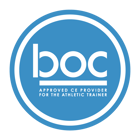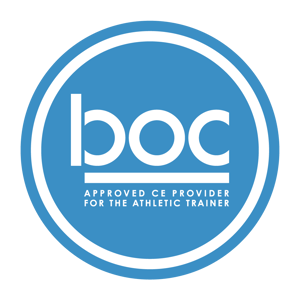Pain Management Alternatives for the Opioid Addicted Client

Description
Pain Management Alternatives for the Opioid Addicted Client is a course designed to improve understanding of chronic pain, facilitate recognition of individuals that may suffer from opioid misuse, and provide alternative treatment interventions to enhance current practices. Understanding the burden of pain, the history of opioid use, and the biological process associated with pain and addiction set the foundation of the course. It is followed by examining the effects of pain in multiple domains and how clients of all ages are affected by pain and opioid use. Additionally, content incorporates a biopsychosocial model and holistic approach, including assessments, therapeutic strategies and interventions for pain management and the opioid addicted client.



Physicourses is an AOTA Approved Provider of professional development. Course approval ID# 6295. This distance learning-independent course is offered at 0.5 CEUs Intermediate Level, OT Service Delivery, Foundational Knowledge. AOTA does not endorse specific course content, products, or clinical procedures.
Available Course Credits
| Alaska State PT & OT Board | 5.00 | ||
 |
AOTA | 5.00 | |
| Arizona State Board of Physical Therapy | 5.00 | ||
| Arkansas State Board of Physcial Thearpy | 5.00 | ||
 |
BOC | 5.00 | |
| California Physical Therapy Board | 5.00 | ||
| Colorado Division of Professions and Occupations | 5.00 | ||
| Connecticut Department of Public Health | 5.00 | ||
| Delaware Examining Board of Physical Therapists and Athletic Trainers | 5.00 | ||
| District Of Columbia Department of Health | 5.00 | ||
| FPTA | 5.00 | ||
| Georgia State Board of Physical Therapy | 5.00 | ||
| Hawaii Board of Physical Therapy | 5.00 | ||
| Idaho Physical Therapy Licensure Board | 5.00 | ||
| Indiana Physical Therapy Board | 5.00 | ||
| Iowa Board of Physical Therapy and Occupational Therapy | 5.00 | ||
| Kansas State Board of Healing Arts | 5.00 | ||
| Kentucky Board of Physical Therapy | 5.00 | ||
| Maine Board of Physical Therapy | 5.00 | ||
| Massachusetts Board of Allied Health Professionals | 5.00 | ||
| Michigan Board of Physical Therapy | 5.00 | ||
| Mississippi State Board of Physical Therapy | 5.00 | ||
| Missouri Advisory Commission for Physical Therapists | 5.00 | ||
| Montana Board of Physical Therapy Examiners | 5.00 | ||
| Nebraska Department of Health and Human Services | 5.00 | ||
| New Mexico Physical Therapy Board | 5.00 | ||
| North Carolina Board of Physical Therapy Examiners | 5.00 | ||
| North Dakota Board of Physical Therapy | 5.00 | ||
| Office of Professional Regulation, Vermont Secretary of State | 5.00 | ||
| Oklahoma Board of Medical Licensure and Supervision - Physical Therapy | 5.00 | ||
| Oregon Board of Physical Therapy | 5.00 | ||
| Pennsylvania Bureau of Professional and Occupational Affairs - Physical Therapy | 5.00 | ||
| Physical Therapy Governing Board New Hampshire | 5.00 | ||
| South Carolina Board of Physical Therapy | 5.00 | ||
| South Dakota Physical Therapy License Board | 5.00 | ||
| State of Alabama Board of Physical Therapy | 5.00 | ||
| State of Rhode Island Department of Health | 5.00 | ||
| Tennessee Board of Physical Therapy | 5.00 | ||
| Utah Physical Therapy Licensing Board | 5.00 | ||
| Virginia Board of Physical Therapy | 5.00 | ||
| Washington State Board of Physical Therapy | 5.00 | ||
| Wisconsin Physical Therapy License Board | 5.00 | ||
| Wyoming Board of Physical Therapy | 5.00 |
Course Content
| 1031 Pain Management Alternatives for the Opioid Addicted Client | Module | ||
| Course Evaluation | Module |
Tammy Divens, M.Ed., OTD, OTR/L
Dr. Tammy Divens has been a practicing OT for over 20 years in a variety of practice settings, treating client populations across the lifespan. She received her initial OT degree at the Ohio State University and continued her education at Concordia University, Portland, where she obtained her masters of education in educational leadership, and her doctor of occupational therapy degree at Concordia University, Wisconsin.
Dr. Divens is an assistant teaching professor and the program director of the occupational therapy assistant program at the Pennsylvania State University - Shenango campus. She serves on the Buhl Regional Foundation Community Addiction Team where she joins community efforts to overcome the issues of addiction and the effects on individuals, families, and community. She is a member of the Alternatives to Pain Management for the Opioid Client development committee at the Community Counseling Center, where she
initiated an occupational therapy program and continues to develop, and provide therapeutic occupational therapy interventions to address the unique needs of individuals who suffer from opioid addiction.

1031 Pain Management Alternatives for the Opioid Addicted Client
Course Objectives
At the conclusion of the course, the therapist will be able to:
1. Select the definition of chronic pain and recall the burden of pain and the
profound impact on healthcare.
2. Recall key historical individuals and events that contribute to opioid use and misuse.
3. Identify the anatomical and physiological structures and processes associated with
pain and addiction.
4. Identify the effects of pain on psychosocial, cognitive, and physical functioning.
5. Recall the effects of pain and opioid use with clients across the lifespan.
6. Identify components of the biopsychosocial model and the advantages of a holistic
approach.
7. Identify assessments, therapeutic strategies, and interventions for pain
management and opioid addicted clients.
8. Recall how to develop ways to promote well-being and become a part of the
movement to combat the opioid epidemic.
1031 Pain Management Alternatives for the Opioid Addicted Client
Table of Contents Page #
HOUR 1
Course Instructions 2
About the Author, Course Description 3
Course Objectives 4
Introduction 6
Chapter 1: Incidence, Impact, and Burden of Chronic Pain 8
Chapter 2: History of Opioid Use 14
A Brief History of Opium 17
What is an Opiate? 22
HOUR 2
Drug Companies Role and Opioid Development 30
Establishment of Pain as the Fifth Vital Sign 33
Chapter 3: Understanding the Physiology of Pain and Addiction 36
Addiction and the Brain 39
Chapter 4: Pain and Mental Health 43
Psychosocial Effects 45
Sleep, Mental Health, and Pain 50
HOUR 3
Physical Functioning 53
Cognitive Functioning 54
Chapter 5: Pain Across the Lifespan 57
Neonates 58
Children 60
Adolescents 63
Warning Signs that an Adolescent Might Be Using Drugs 66
Adults 67
Older Adults 71
Classic Signs of Opiate Addiction in Adults
HOUR 4
Chapter 6: Biopsychosocial Approach 74
Ten Fundamental Concepts and Therapeutic Techniques
to Address Psychological Factors 81
Chapter 7: Therapeutic Interventions 84
Current Treatment Options
Assessments 86
Theoretical Approaches 87
Therapeutic Strategies and Interventions 89
HOUR 5
Chapter 8: Well-Being and Quality of Life 94
Mindfulness-based Interventions 97
Becoming a Part of the Movement 99
Letter from the U.S. Surgeon General
References 105
Exam 113
Evaluation 119
Customer Cancellation:
Customers may request cancellations of their enrollment or subscription in our digital or live educational services, subject to the terms outlined below. Cancellation requests must be made in writing, either through email or through our designated cancellation process.
Refund Policy:
Refunds will be provided according to the following guidelines: i) For cancellation requests made within 5 days of the initial enrollment or subscription, a full refund will be issued. Refunds will be issued using the same method of payment used for the original transaction, unless otherwise agreed upon in writing.
Provider Cancellation:
In the event Physicourses cancels your course, you will be issued a full refund or transfered to a course of equal or greater value.
Physicourses Conflict of Interest Disclosure Policy for Authors and Staff:
All persons in a position to control the content of any educational activity (authors or staff from Physicourses) are required to disclose to Physicourses any potentially biasing or potential conflict of interests in relationships of a financial, professional, or personal nature.
The intent of this disclosure is not to prevent authors or staff with commercial affiliations from planning an educational activity, or to prevent a Presenter with commercial affiliations from presenting, but rather to inform Physicourses of any potentially biasing relationships so that conflicts are resolved prior to the activity.
It is the policy of Physicourses to ensure balance, independence, objectivity and scientific rigor in all of its continuing education activities. All relevant conflicts of interest identified by the planner, presenter, or as determined by Physicourses will be disclosed to the audience verbally and in writing prior to the start of the presentation.
Definitions for Authors/Staff:
Relevant financial relationships are those relationships in which you benefit by receiving a salary, royalty, intellectual property rights, gift, speaking fee, consulting fee, honoraria, ownership interest (e.g., stocks, stock options, or other ownership interest, excluding diversified mutual funds), or other financial benefit. Financial relationships can also include “contracted research” where the institution gets the grant and manages the funds and you are the principal or named investigator on the grant.
Educational Level: Intermediate
Target Audience: PT, PTA, OT, OTA, ATC
Course Completion Requirements: Passing an online exam with 70% or greater will be required to earn continuing education credit
This course is approved for 0.5 CEUS. 5 contact hours
Physicourses is committed to ensuring accessibility to the most extensive audience possible. If you have any questions or special needs requests, please contact us at info@physicourses.com.